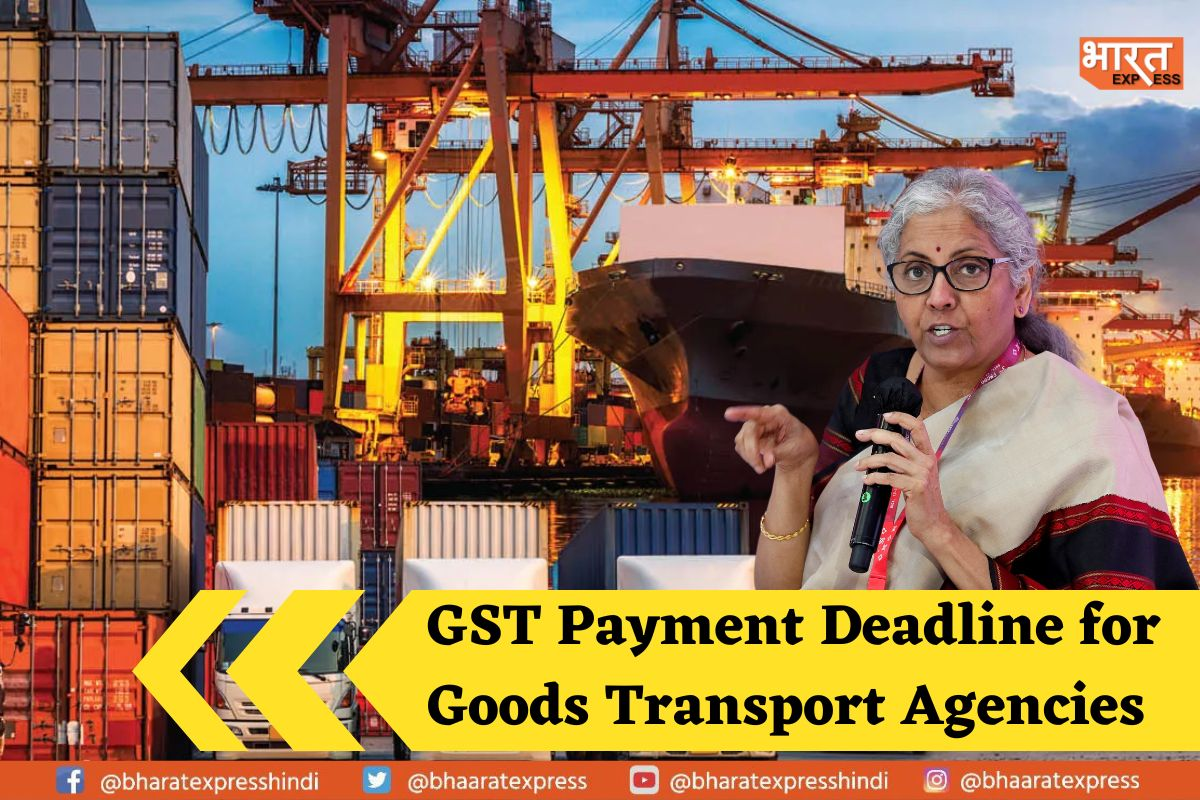
REFERENCE IMAGE
Goods Transport Agencies now have until May 31 to opt for paying GST on a forward charge basis for the current fiscal year, according to a recent extension granted by the government. In accordance with GST regulations, these agencies have the choice to collect and pay GST themselves, or else the recipient of their services will be liable to pay the tax under a reverse charge mechanism.
In order for a Goods Transport Agency (GTA) to choose to pay the Goods and Services Tax (GST) on a forward charge basis at rates of either 12% with input tax credit or 5% without ITC benefits, the agency must complete a form (Annexure V) before March 15th of the previous fiscal year.
Also Read: Over 6 lakh Families Receive Rs 13,290 Crore Under PM Jeevan Jyoti Bima Yojana: Nirmala Sitharaman
In May, the GST Act was amended by the finance ministry to indicate that for the Financial Year 2023-2024, Goods Transport Agencies (GTAs) must exercise their option on or before May 31st. As per the GST, any entity that provides road transportation services and releases a consignment note is classified as a Goods Transport Agency, a definition that has been in effect since July 1st, 2017.
According to the amendment, a Goods Transport Agency (GTA) that starts a new business or exceeds the threshold for registration during a financial year may choose to pay GST on its own services for that fiscal year by submitting a declaration in Annexure V within 45 days of applying for GST registration or one month after obtaining registration, whichever comes later.
Also Read: Axis Bank Revolutionizes Payment System By Linking RuPay credit cards With UPI
According to Senior Partner at AMRG & Associates, Rajat Mohan, Goods Transport Agencies (GTAs) have the option to choose between forward charge or reverse charge mechanism for tax payment, and both mechanisms have their own sets of pros and cons.
According to Mohan, the forward charge mechanism enables taxpayers to utilize tax credit and pay taxes only on the value added difference. On the other hand, the reverse charge mechanism eliminates the necessity of maintaining extensive records for tax payments and also releases working capital that is blocked in taxes.

















